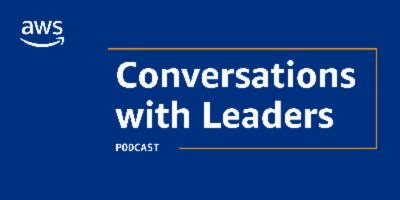Security leadership
Insights and strategies to secure the modern enterprise
Navigating the threat landscape
Effective security leaders recognize that security is a collective pursuit. While the CEO may be the proverbial captain guiding the ship to its destination, the CSO is the navigator responsible for helping the organization avoid dangerous waters and weather storms when necessary. Here, CISOs, CSOs and other security owners share their experience as navigators who have helped their companies manage risk, protect vital data, and securely onboard new technologies in the pursuit of digital transformation.

Securing Generative AI: What Matters Now
IBM and AWS recently partnered with Oxford Economics to survey 200 executives regarding their generative AI initiatives and enablement. The study revealed a concerning trend of executives prioritizing innovation over security (70%), despite also stating that secure and trustworthy AI is essential to business success (82%). Read the report to learn what it takes to implement generative AI data security.

Security foundations
No business can survive without a strong security foundation. But what elements make some organizations more secure than others? Learn from executives why it’s essential to prioritize security culture, data strategy, and enabling innovation as key functions of your security organization.
Conversations with security leaders
Join Clarke Rodgers, Director of AWS Enterprise Strategy , as he interviews security leaders across the AWS organization and beyond, discussing everything from establishing a security department, to mitigating security risks, to achieving regulatory compliance, and building security culture into everything we do. Catch our latest episodes below or click here to browse the full series.
Find your community with AWS CISO Circles
CISOs and CSOs come together in locations all around the world to discuss the biggest security topics of the moment with their peers in our CISO Circle communities. With NDAs in place and Chatham House Rule in effect, security leaders can feel free to speak their minds, ask questions, and get feedback from peers through candid conversations facilitated by AWS Security leaders.
Learn more
Podcasts for security leaders
Security never sleeps, that’s why we’ve prepared a robust catalogue of audio content to inform and entertain security leaders on the move.
Two-minute security trainings
At AWS Security, we talk with CISOs daily, covering everything from common challenges they’re facing to their security aspirations for the future. We often hear a lot of the same questions around security culture, compliance, and threat mitigation. Start your conversation off right by watching these two-minute training videos on our most-requested topics. And catch our full Cloud for CISOs training series on YouTube.








